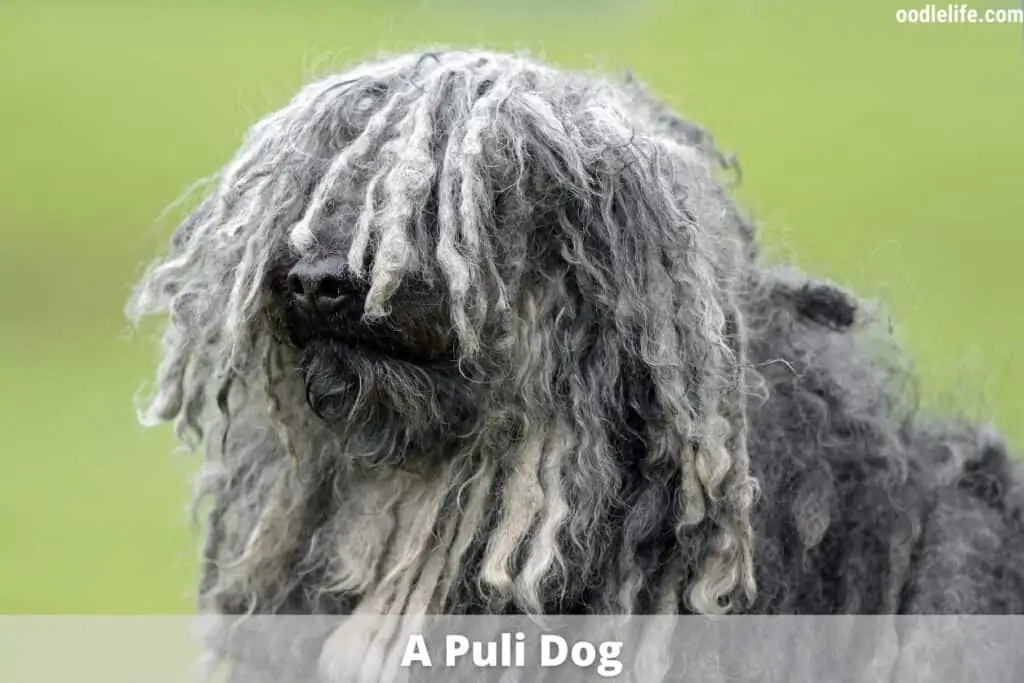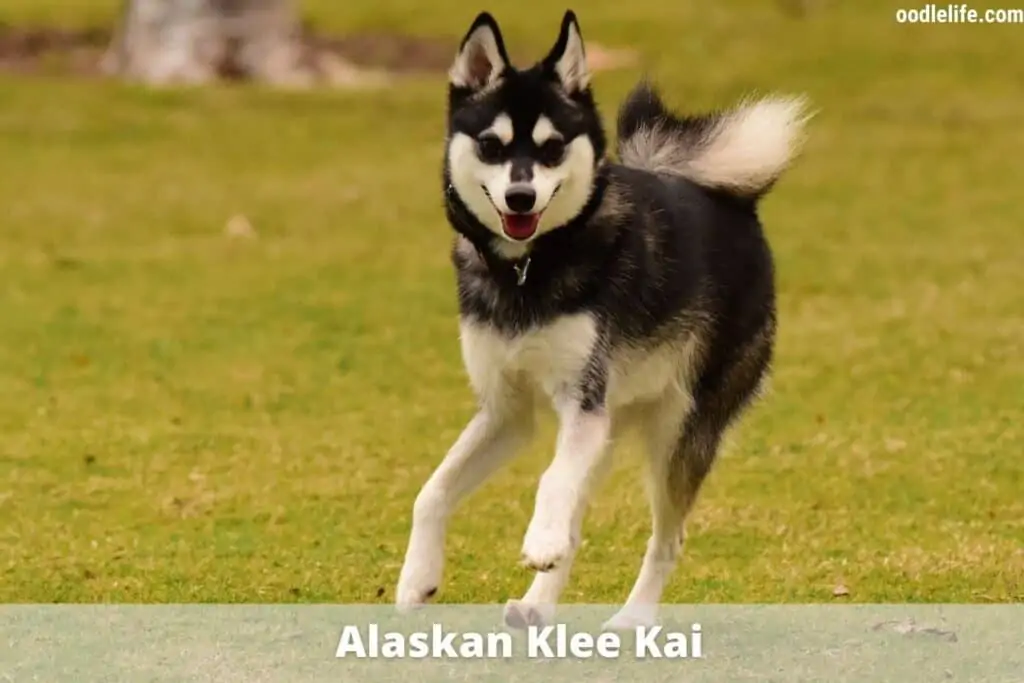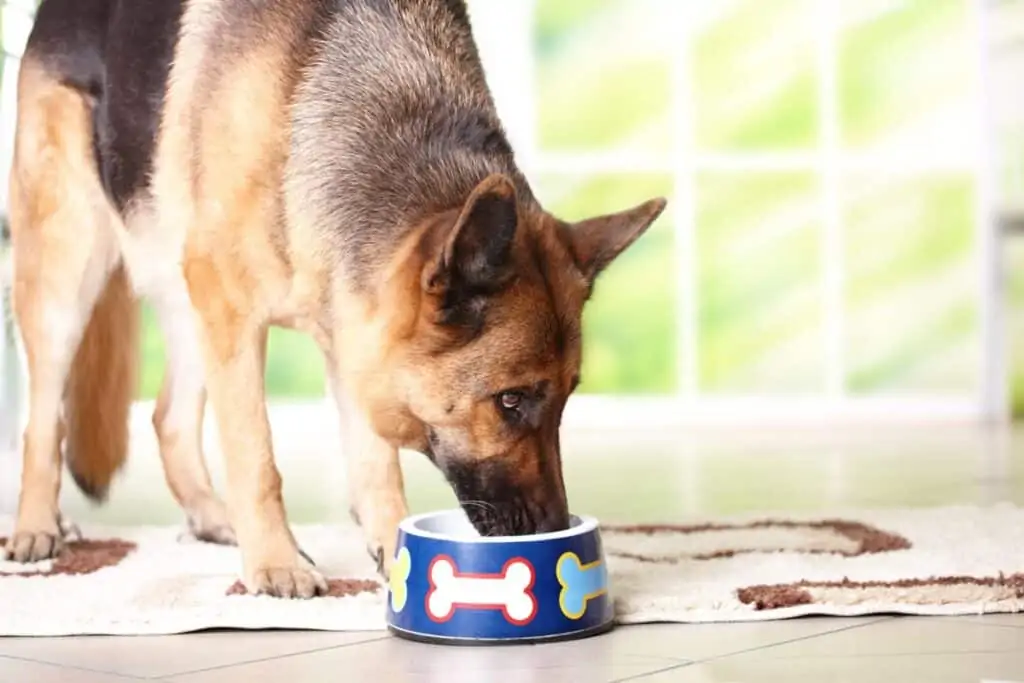Can Dogs Eat Cilantro? [Benefits]
There’s no need to worry if your dog eats cilantro.
Can dogs eat Cilantro? Yes, dogs can safely eat Cilantro. Not only is cilantro safe for dogs to consume, but numerous studies show that cilantro also provides several health benefits.

While my dog turns her nose up at raw cilantro, she’ll happily eat it as an added ingredient in her favorite foods.
However, we want to go beyond looking at whether a dog can or will eat cilantro to exploring why eating cilantro can offer health benefits for your dog.

About Cilantro
Cilantro (Coriandrum sativum) is a bright green, leafy herb that goes by several names, including coriander, Chinese parsley, and dhania. It’s popular in Mexican foods like salsa and Asian foods like pho. The seeds, also known as coriander, are popular in Indian cuisine.
In Australia we call Cilantro Coriander. So can dogs eat Coriander? Yes they can, it is not toxic.
Is It Safe for Dogs?
Is cilantro toxic to dogs? According to the ASPCA, cilantro is not toxic to dogs. So, you don’t have to worry if your dog gobbles up some food you accidentally drop on the floor that contains cilantro.
My dog is a salad eater. She would chomp down all day on lettuce, raw cabbage, and cucumbers if I’d give them to her. However, she has zero interest in raw cilantro. If I offer cilantro to her on its own, she gives me a hard doggy “no” and walks away.
Some people have a genetic aversion to cilantro and avoid it because it tastes like soap. The OR26A gene that can cause cilantro aversion in humans also exists in dogs. However, whether some dogs react to cilantro like some humans has not been a subject of research.
However, I find that if I offer my dog food that contains either cooked or raw cilantro rather than a lone leaf of cilantro, she’ll happily chow down on it.
The only way to find out if your dog likes cilantro is to offer it to your dog and see if they like it. Just be sure that it’s not in a food that contains ingredients dogs cannot eat, like onions and garlic.

7 Cilantro Health Benefits for Dogs
Cilantro has proven in the lab to have many health benefits. While these might not all be issues you worry about with your dog, it’s nice to know that using cilantro in their diet (and yours) can provide added benefits.
1. Cilantro Improves Doggy Breath
If your dog has stinky breath the antibacterial properties in cilantro can help make it smell better. Add a little bit of cilantro to your dog’s water or bake it into a treat for a natural way to make your dog’s breath smell better.
2. Cilantro is Anti-Inflammatory
If you have an older dog that suffers from arthritis or other aches and pains, cilantro may help to relieve it. Research shows cilantro to be useful against inflammation and pain.
3. Cilantro Helps Protect Against Cancer
Studies have indicated that cilantro has positive effects against prostate cancer and against breast cancer. While only 0.3%-0.6% of dogs get prostate cancer, mammary cancer is the most common tumor older female dogs get.
4. Cilantro Has Antifungal and Antibacterial Properties
Cilantro has natural antifungal and antibacterial properties. Cilantro’s antifungal and antibacterial benefits can especially be beneficial if your dog is prone to eating random things that they shouldn’t, such as trash, old food they find on the floor, or poop.

5. Cilantro Can Improve Digestive Health
Humans have been using cilantro to help with digestion for a long time. Studies show that it helps eliminate stomach pain and bloating in humans with irritable bowel syndrome.
Thus, it’s a fair assumption that a dog with digestion problems may benefit from eating cilantro. If your dog has a sensitive stomach, try stirring a little cilantro in with their food to see if it helps.
6. Cilantro Provides Benefits for the Heart
Just like humans, some dogs suffer from high cholesterol and blood pressure. Studies indicate that cilantro may help lower bad cholesterol levels and high blood pressure in humans.

7. Cilantro Provides Nutritional Benefits
The main nutritional benefits of cilantro come from these vitamins and minerals:
- Vitamin K: vital for blood clotting, bone metabolism, and calcium regulation
- Vitamin A: essential for vision, immune system, reproductive, and organ health
- Vitamin C: helps repair body tissues, absorb iron, maintain proper immune system function, and maintain bones
- Manganese: helps produce energy, metabolize proteins and carbs, make fatty acids, and maintain bone and cartilage.
- Folate: helps make red blood cells and prevent DNA changes that can lead to cancer
- Copper: helps form red blood cells; absorb iron; and maintain bones, blood vessels, and nerves
A half-cup of raw cilantro could provide 28% of Vitamin K and 3% of Vitamin A that your dog needs for the day. However, it’s essential not to use cilantro as the primary source of these vitamins and minerals since your dog won’t be eating that much.
Negative Reactions to Cilantro in Dogs
While cilantro won’t cause digestive or allergic reactions for most dogs, there is still a chance of adverse reactions when a dog (or person) eats cilantro:
- Allergic reaction: Watch for hives, facial or throat swelling, diarrhea, and stomach pain.
- Upset stomach: Overeating cilantro can result in gas, stomach pain, cramps, vomiting, or diarrhea.
- Flu-like symptoms: If cilantro contains the Cyclospora cayetanensis parasite, it can cause intestinal problems and flu-like symptoms.
- Bleeding: Eating too much cilantro can keep blood from clotting on wounds.
You will want to call or visit your veterinarian if you notice any negative reaction to cilantro in your dog.

Ideas for Feeding Your Dog Cilantro
You can add cilantro to your dog’s food in one of four forms:
- Chopped raw cilantro: add a teaspoon into wet or dry dog food
- Dry cilantro: stir half a teaspoon into wet or dry dog food
- Cilantro oil extract: add a drop into the water dish
- Cilantro cooked into food: add up to 1/4 a cup of fresh or dry cilantro into cooked dog food like chicken and rice or a homemade dog treat
Final Thoughts
Cilantro is safe for dogs to consume and can be a healthy part of a dog’s diet. It contains vitamins A, C, and K, which can be nutritional supplements to your dog’s regular food.
Cilantro can have immediate health benefits, including freshening your dog’s breath or calming its stomach. It can also possibly provide long-term benefits, such as cancer protection and inflammatory pain relief.
If you think cilantro could benefit your dog, why not give it a try? Just be sure to offer it in small amounts to make sure it agrees with your pooch’s stomach.